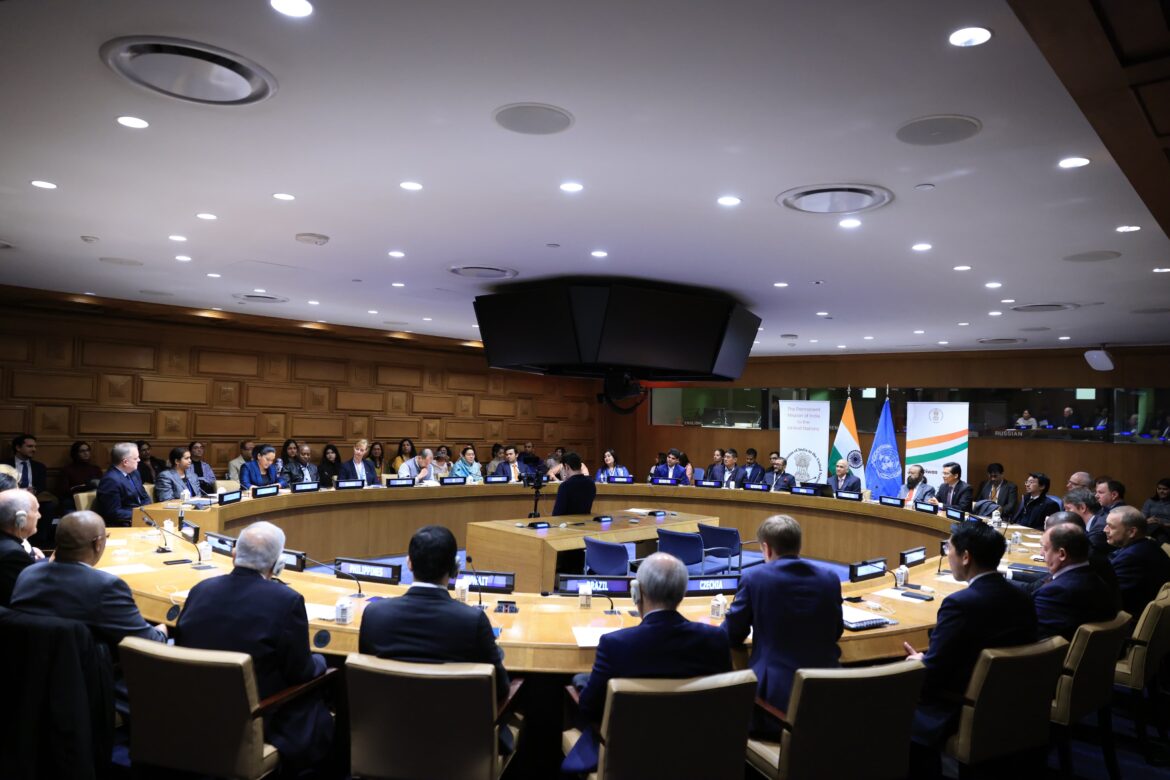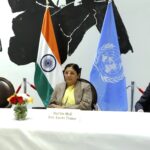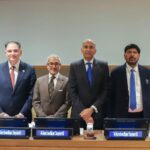The Permanent Mission of India to the United Nations organized a special event on November 22nd in New York to celebrate “Hindi Diwas 2024.” This occasion also marked the 75th anniversary of Hindi being adopted as India’s official language, a milestone recently observed on September 14, 2024.
The event saw participation from an all-party delegation of Indian Members of Parliament from India, diplomats from various permanent missions, and UN officials in New York.
Permanent Representative of India to the United Nations, Ambassador, P. Harish, noted, “Hindi is the most widely spoken language in India, with nearly 450 million native speakers. Apart from India, more than 600 million people speak Hindi globally, making it the third largest linguistic group in the world, after English and Mandarin.”
During the event, Ambassador Harish reflected on the pivotal role Hindi played in uniting the country during India’s freedom struggle, which is why the framers of the Indian Constitution designated Hindi as the official language on September 14, 1949.
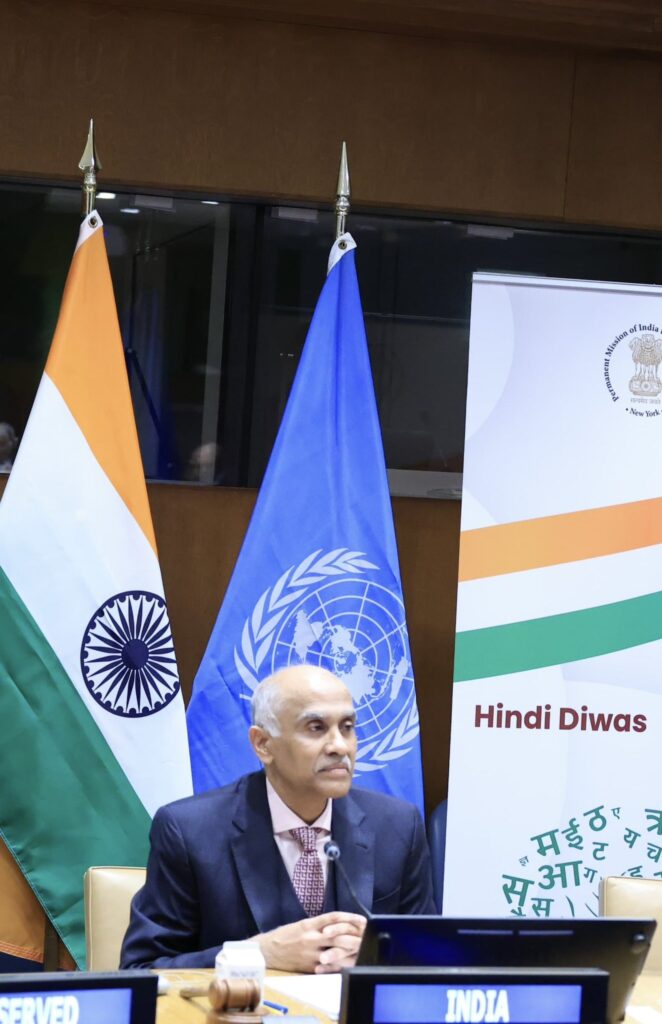
Ambassador Harish went on to say Hindi, as a language, embodies India’s rich cultural heritage and has gained global recognition. He further said that the event was held in recognition of Hindi’s increasing international appeal, and its role as a bridge connecting diverse communities worldwide.
“In a multilingual, multicultural and multiethnic nation like India, language plays a determining role in shaping the cultural and social identity of people in a diverse country like India. Language becomes more than just a medium of communication. It becomes an expression and a vehicle of cultural heritage and unity,” added Ambassador Harish. “It bridges a gap between the diverse population with different backgrounds and cultures. It instilled the feeling of unity in a country divided into many languages and dialects. Hindi, as a bridge language, played a central role in carrying forward the spirit of the freedom struggle to every corner of the country.”
Permanent Representative of Mauritius to the United Nations, Ambassador Jagdish Dharamchand Koonjul, noted, “This day is a celebration, not just of a language, but of a culture, a heritage and an identity that has transcended borders and connected hearts across the globe. In Mauritius, a multiracial, multicultural and multilingual country, Hindi holds a place of profound significance.”
Ambassador Koonjul highlighted that Mauritius, often celebrated as the “land of the Ramayana,” has cultivated Hindi in a unique way. From homes to schools, and temples to cultural events, Hindi flourishes as a vibrant, thriving language. In Mauritius, Hindi is integrated into the education system at all levels—from primary schools to universities. Students can graduate in Hindi, pursue doctoral studies, and even engage in research within this rich linguistic tradition, he added.
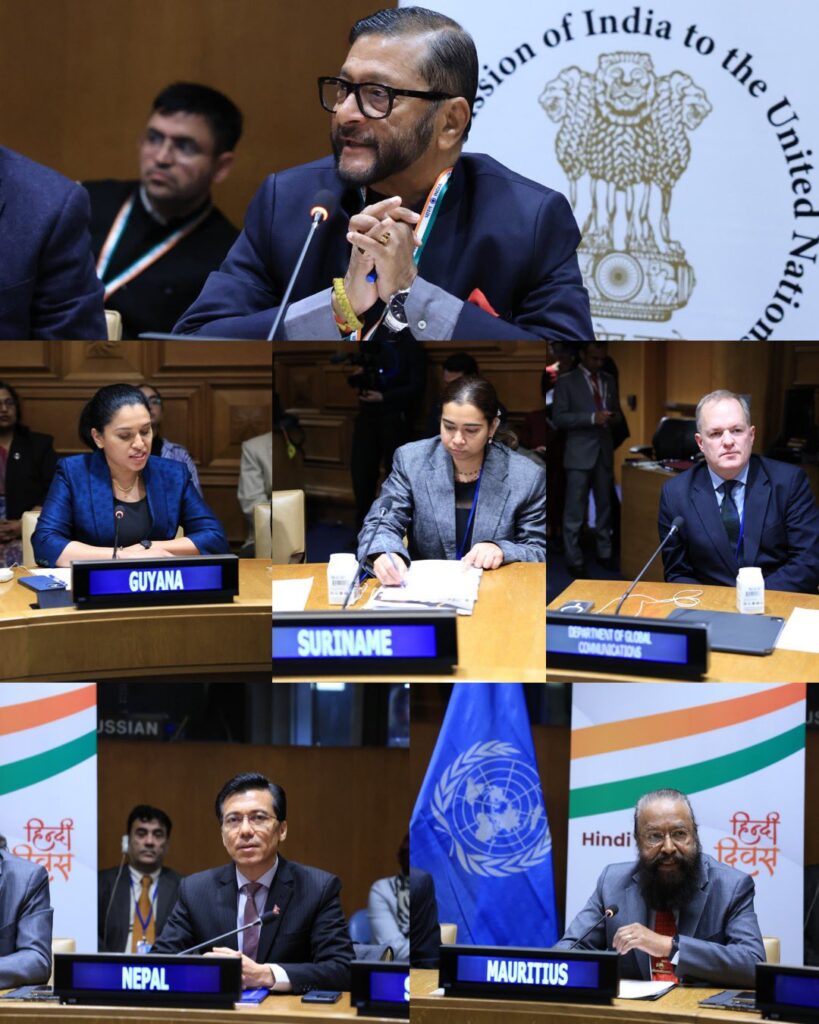
Similarly, Nepal’s Permanent Representative to the United Nations, Ambassador Lok Thapa, shared that over 100,000 people in Nepal speak Hindi as their mother tongue, while approximately 225,000 use it as a second language. This notable number ranks Hindi among the top 20 national languages out of the 140 spoken in Nepal. He emphasized the shared linguistic heritage of Nepali and Hindi, both of which trace their roots to Sanskrit.
“Hindi language is widely spoken and understood in Nepal. This highlights the cultural and linguistic diversity of the country and the important role the Hindi language plays within our society,” added Ambassador Thapa.
Deputy Permanent Representative of Guyana to the United Nations, Ambassador Trishala Persaud, highlighted the significant influence of Hindi on Guyana’s multicultural heritage. She explained that numerous Hindi words, often derived from the Bhojpuri dialect of Eastern Uttar Pradesh and Bihar, have seamlessly merged into Guyanese Creole, reflecting the country’s diverse cultural tapestry. These words are an integral part of daily life in Guyana, from the food people enjoy to the terms used to address family members.
Ambassador Persaud also noted that people in Guyana even sing Hindi songs, without understanding their meaning, with deep “emotion and love.” She went on to state that efforts to promote the Hindi language in Guyana continue, with classes offered in private schools, mandirs, and religious organizations.
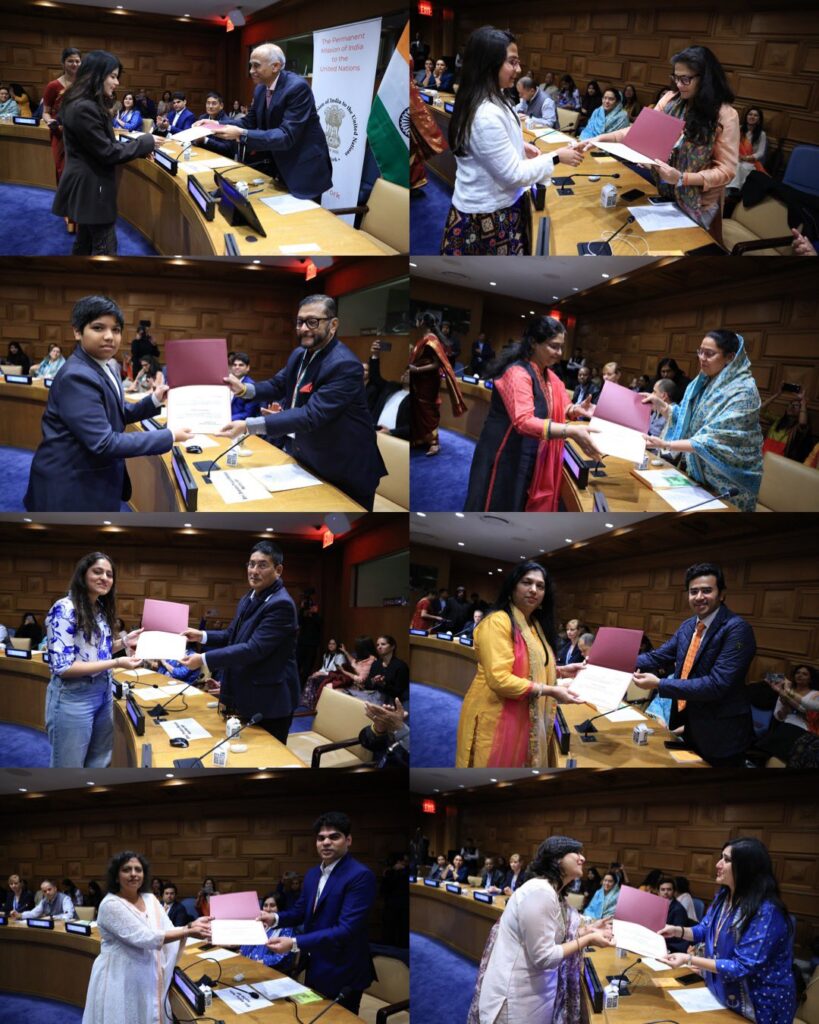
Director of the UN Department of Global Communications, Ian Phillips, who spoke on behalf of Under Secretary-General Melissa Fleming, praised India’s global linguistic influence. He noted that with over 600 million speakers worldwide, Hindi ranks as the third most spoken language globally.
“It was first spoken in the United Nations General Assembly in 1949. Hindi has contributed words like jungle, pajamas, bungalow, yoga, and guru to the English language. Bollywood, the world’s largest film industry, has popularized Hindi and Indian culture globally. India has the world’s largest number of YouTube users, with three of the top 10 most subscribed channels featuring Hindi content,” added Phillips.
At the event, Indian Member of Parliament, Virendra Prasad Vaishya emphasized Hindi’s profound impact in India and around the world. Charge d’Affaires of Suriname, Varsha Ramratan, and other dignitaries also addressed the gathering. Certificates were awarded by the visiting Members of Parliament to winners of Hindi essay and poetry competitions, celebrating the language’s rich cultural and literary contributions.


